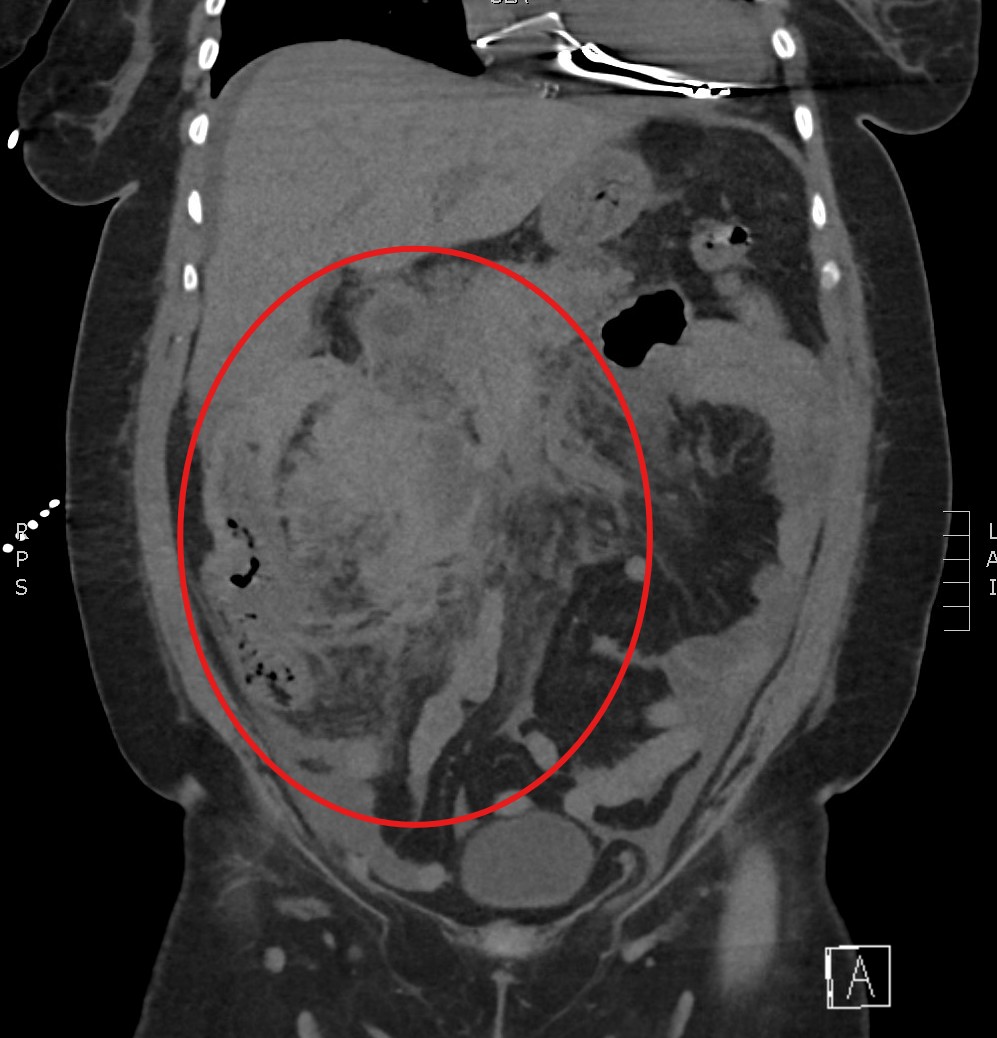Monday Poster Session
Category: GI Bleeding
P3114 - Hydralazine-Induced ANCA Vasculitis Associated Gastrointestinal Bleed: A Case Report
Monday, October 27, 2025
10:30 AM - 4:00 PM PDT
Location: Exhibit Hall

Kyle Schneider, MD
Methodist Dallas Medical Center
Dallas, TX
Presenting Author(s)
Kyle Schneider, MD, Katherine Gonzalez, MD, Shivani Desai, DO, Hamaad Rahmann, DO
Methodist Dallas Medical Center, Dallas, TX
Introduction: ANCA vasculitis (AV) is known to primarily affect small blood vessels and can be caused by hydralazine use. It is associated with myeloperoxidase (MPO) and proteinase 3 (PR3) antibodies. It often presents with symptoms such as fatigue, fever, weight loss, cough or hemoptysis. Here we present a case of gastroduodenal artery (GDA) bleed secondary to necrotizing vessel disease from AV.
Case Description/
Methods: A 51 y/o female with past medical history of anemia, nonischemic cardiomyopathy with ICD placement, type 2 diabetes, hypertension, and hyperlipidemia presents to the emergency department (ED) with hemoptysis, dyspnea, reported chills, throat pain, and melena which all began 2 days before. She had been on Eliquis for a history of deep vein thrombosis (DVT) and recently had a 20-pound weight loss over a few months. Initial labs revealed hemoglobin levels of 5.7 g/dL (baseline ~10g/dL), creatinine 3.1mg/dL (baseline ~1.1mg/dL), and imaging of the chest revealed diffuse ground glass opacities, concerning for infection or alveolar hemorrhage. On day three of admission, she developed sharp abdominal pain and became hypotensive. CT abdomen/pelvis revealed large retroperitoneal hematoma surrounding the descending duodenum concerning for arterial hemorrhage and she underwent embolization of GDA with resolution of bleeding (image 1). She was found to be positive for ANA, p-ANCA, MPO antibody, and PR3 antibody due to being recently started on hydralazine for blood pressure control. Renal biopsy showed marked arterial intimal hyperplasia and pauci-immune necrotizing glomerulonephritis. She received plasma exchange, chemotherapy, and steroids with initial improvement and she subsequently had a pancreaticoduodenal arterial bleed requiring second embolization. She was stabilized and discharged on steroids and outpatient therapy.
Discussion: While gastrointestinal (GI) bleeding from AV is rare, it can present as a serious complication, as seen in this patient. The approach to treatment includes treating underlying disease, typically with immunosuppressive agents, and managing the GI symptoms with endoscopy, embolization, or surgery. Including AV in the differential for GI bleeding in the setting of multiple organ involvement can help lead to early diagnosis and prompt management.

Figure: Image 1: Coronal plane imaging showing area of retroperitoneal hematoma surrounding duodenum (red circle)
Disclosures:
Kyle Schneider indicated no relevant financial relationships.
Katherine Gonzalez indicated no relevant financial relationships.
Shivani Desai indicated no relevant financial relationships.
Hamaad Rahmann indicated no relevant financial relationships.
Kyle Schneider, MD, Katherine Gonzalez, MD, Shivani Desai, DO, Hamaad Rahmann, DO. P3114 - Hydralazine-Induced ANCA Vasculitis Associated Gastrointestinal Bleed: A Case Report, ACG 2025 Annual Scientific Meeting Abstracts. Phoenix, AZ: American College of Gastroenterology.
Methodist Dallas Medical Center, Dallas, TX
Introduction: ANCA vasculitis (AV) is known to primarily affect small blood vessels and can be caused by hydralazine use. It is associated with myeloperoxidase (MPO) and proteinase 3 (PR3) antibodies. It often presents with symptoms such as fatigue, fever, weight loss, cough or hemoptysis. Here we present a case of gastroduodenal artery (GDA) bleed secondary to necrotizing vessel disease from AV.
Case Description/
Methods: A 51 y/o female with past medical history of anemia, nonischemic cardiomyopathy with ICD placement, type 2 diabetes, hypertension, and hyperlipidemia presents to the emergency department (ED) with hemoptysis, dyspnea, reported chills, throat pain, and melena which all began 2 days before. She had been on Eliquis for a history of deep vein thrombosis (DVT) and recently had a 20-pound weight loss over a few months. Initial labs revealed hemoglobin levels of 5.7 g/dL (baseline ~10g/dL), creatinine 3.1mg/dL (baseline ~1.1mg/dL), and imaging of the chest revealed diffuse ground glass opacities, concerning for infection or alveolar hemorrhage. On day three of admission, she developed sharp abdominal pain and became hypotensive. CT abdomen/pelvis revealed large retroperitoneal hematoma surrounding the descending duodenum concerning for arterial hemorrhage and she underwent embolization of GDA with resolution of bleeding (image 1). She was found to be positive for ANA, p-ANCA, MPO antibody, and PR3 antibody due to being recently started on hydralazine for blood pressure control. Renal biopsy showed marked arterial intimal hyperplasia and pauci-immune necrotizing glomerulonephritis. She received plasma exchange, chemotherapy, and steroids with initial improvement and she subsequently had a pancreaticoduodenal arterial bleed requiring second embolization. She was stabilized and discharged on steroids and outpatient therapy.
Discussion: While gastrointestinal (GI) bleeding from AV is rare, it can present as a serious complication, as seen in this patient. The approach to treatment includes treating underlying disease, typically with immunosuppressive agents, and managing the GI symptoms with endoscopy, embolization, or surgery. Including AV in the differential for GI bleeding in the setting of multiple organ involvement can help lead to early diagnosis and prompt management.

Figure: Image 1: Coronal plane imaging showing area of retroperitoneal hematoma surrounding duodenum (red circle)
Disclosures:
Kyle Schneider indicated no relevant financial relationships.
Katherine Gonzalez indicated no relevant financial relationships.
Shivani Desai indicated no relevant financial relationships.
Hamaad Rahmann indicated no relevant financial relationships.
Kyle Schneider, MD, Katherine Gonzalez, MD, Shivani Desai, DO, Hamaad Rahmann, DO. P3114 - Hydralazine-Induced ANCA Vasculitis Associated Gastrointestinal Bleed: A Case Report, ACG 2025 Annual Scientific Meeting Abstracts. Phoenix, AZ: American College of Gastroenterology.
